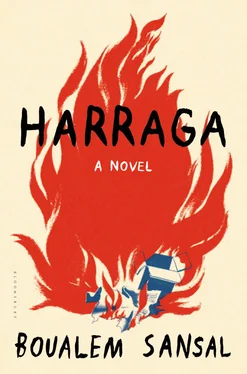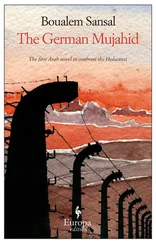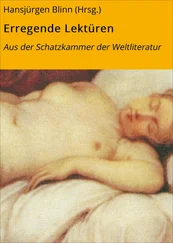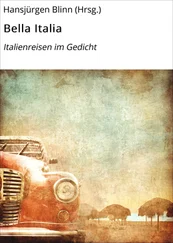Everything happened very fast although my nerves crackled with unbearably slow suspense. I was ushered inside by a vague young woman, a local peasant girl who had taken up medicine. Though her white coat was genuine, she wore it like a costume at a village fête. I remember my first white coat, I was so proud, I wore it like a wedding dress, sunlight shimmered on it and the air moved deliciously over its curves. Later I cut it up to make dusters. The girl’s unduly careful movements clearly signalled a fresh graduate. It probably takes her two hours to plunge a needle in, a slow death for her patients, but given time she will learn to look the part, to jab a patient faster than her shadow. She spoke the way she moved, groping for words, taking time to weigh up their solidity and only reluctantly pronouncing them. I pictured her as a tortoise afraid of tumbling into the void. She probably believes that the modern world is all prudence and precision whereas actually it’s quite the opposite, we make do and mend as fast as we can without troubling ourselves about old-fashioned considerations. She knew who I was, someone had told her I was a toubib , a doctor, she gave me a deferential smile and greeted me with a salaam . What more can a pilgrim wish for than to be expected? It’s pleasant. At Parnet, visitors are never welcome, the matrons and the porters ignore them until they pathetically turn tail and leave. The girl rubbed her hands together, then, shuffling away in her harem clogs, I mean her wooden-soled flip-flops, she led me to the Mother Superior whom she referred to as Lalla — mistress — via a vaulted maze that sprawled and coiled endlessly. It seemed to me only reasonable that it should require some effort to reach the saint of the sanctuary. I busied myself with such pointless thoughts to keep my mind occupied, I knew what was coming next. In front of us, a door opened and… yes, there could be no doubt, this was Sister Anne. The moment had arrived, my heart was fluttering. She was expecting me. Slim and scarcely taller than her white, starched wimple, utterly radiant and dressed in harsh grey. She was ageless, in the way that nuns so often seem to be, but she had certainly seen forty Lenten fasts. She smiled warmly at me and, in a sudden surge of heathen feeling, hugged me hard and kissed me. It was nice, she smelled of lavender, of soap and incense and the fine rich loam of the kitchen garden.
‘Come, my child, enter… You are exactly as I foresaw. Come, Lamia, sit by me… Here is a glass of cool water; take, drink…’
She spoke just like the Bible: take, eat; for this is my body; drink, for this is my blood .
She exuded an extraordinary sense of strength and gentleness which immediately calmed me. It is precisely the attitude I would like to adopt in my dealings with people though I realise I am merely a would-be virago trying to hold her own against the harshness of her Muslim brothers rather than a true saint capable of soothing lions with a luminous glance. For me, force of circumstance has always worked in the negative, I am contaminated, embittered, intolerant, spiteful, quarrelsome, impulsive and I don’t know what. I hate myself. I have been spared plague and cholera, which I suppose is a good thing, though for how much longer remains to be seen! And yet, I’m also a romantic, I write poetry, I believe in simple things and above all I cherish truth over sentiment. I was spellbound by Sister Anne, prepared to accept whatever she had to offer, whether grace or coup de grâce . She went on speaking in a distant, barely audible voice.
‘Chérifa came to us three weeks ago. She was in a piteous state. She had been wandering the streets of Algiers when a charitable soul, a friend of the order, noticed her. She brought Chérifa here, thinking it was the best thing to do. And in all conscience, I believe it was, though ordinarily our standing and our means make us ill-equipped to deal with such requests. We are tolerated here, no more than that. We offer some small service to the local people, they are so poor they dare not go into the city. I thought long and hard, it is a great responsibility, but given her circumstances, I took her in. I don’t know whether a hospital would have admitted her, she is… she was a minor, unmarried, pregnant and… bizarrely attired, hee! hee! Blida is an extremely conservative town, ruled by the Islamists. I was frightened for her, they can be so… so…’
‘If they were just evil, spiteful, vile and satanic, I wouldn’t mind, but they’re narrow-minded and stupid too,’ I said, to help her out.
‘You should not say such things, they are very dangerous. If they should hear you…’
‘There’s no fear of that, they’re deaf to all things human.’
‘I called upon a doctor who is a friend of the convent, Doctor Salem, it has been a long time since he practised, but he still has his wits. He took care of her and she quickly recuperated somewhat. I have a number of useful skills myself. We therefore felt she would be able to give birth here in the convent… She was so endearing, with her belly button almost touching her chin and that fearless air of hers!’
‘Did she have her holdall?’
‘Pardon?’
‘Her clothes, her belongings, the baby clothes.’
‘Her bag? Oh yes, she dragged it behind her by the strap, it looked like a puppy refusing to walk, hee! hee! hee!’
The slightest thing made the Mother Superior giggle. But she quickly became grave and abstracted. She sat for a moment, silent, thoughtful, staring into the distance, glancing here and there, at the ceiling, at her pale, slender hands clasped in her lap, at the crucifix hanging on the wall or a particular book on the shelves. This, to me, is what religion should mean: to silently contemplate the world, alert to its every murmur, its every tremor. There should be no need for troops and cannons. Words, sighs, glances, they are sufficient. Sister Anne’s eyes radiated the sort of awed apprehensiveness that clearly came from constant prayer. And from penitence, I imagine. Though they live isolated from the world of men, and in close proximity to the Lord, every day the Sisters here must find some minor sin to be erased. I would not be at all surprised to discover she experiences ecstatic visions. There are places such as this, austere, modest, where dream and reality become one as prayers are said. My old house is a little like that; ringing as it is with myth and mysteries and with the echo of unanswered prayers, I don’t know whether I am more enthralled by image or by shadow, nor why I spend my time talking to the dead, or rather to their ghosts. I thought about Maman who had the same habit of searching around whenever she began recounting one of our old family stories. It was as though, rummaging through a cluttered past, she chanced upon it by accident. At some point in this ritual, her eyes would suddenly light up. Something that had baffled her a little she could now see clearly, see the thread of the story amid the confusion of sundry images, she could draw it towards her and reveal its warp and weft, its magical design. In fits and starts of ‘Um… Oh, that’s right… ah yes, I remember now… let me just think,’ she would beat this carpet, dust off the cobwebs then, not quite herself, she would gently tease it out, as though fearful that, if she brought it too quickly from her memory, it might break or that our family secrets might come into contact with the poisoned air of the present, might wither before they could be known. We would wait with bated breath, ready to draw near the better to take in the apparition. I still have her words in my ear; one by one I took them in, treasured them, stored them in the hollow of my memory, more to reassure her than to hear them. She told us these wondrous stories so many times that we scarcely thought about them. I am obsessed by the tale of Tata Houria which is fascinating and terrible. I often think about Tata Houria, one of Maman’s cousins, about what part love played in her odyssey and what part madness. Because to do what she did, for as long as she did, there had to be something going on in her head. In those unfathomable and uncertain days back in the douar , where there was no thought of deliverance, people lived and died as Adam had done. Firstly, Tata Houria refused to mourn her husband and allow herself to be remarried. Then, she died far from the douar , something no woman had ever done before her — indeed so far from the douar that no one knows quite where — in India, Guatemala, America, Poland or elsewhere. Maman could not remember the name of the country, the poor thing had no notion of geography, she knew the village where she had grown up and Rampe Valée and nothing beyond. She vaguely knew the Kasbah, where she would go once a month with her old friend Zineb to drink mint tea and discuss all the misfortunes in the world since Adam and Eve, talk a little about magic to steel themselves, then, all keyed up, they would rush around visiting the shrines and the mausoleums. Beyond these frontiers, all the world was darkness. Houria’s odyssey began during the Second World War and ended thirty years later in obscurity and legend. Scarcely had Tata Houria been wed than her young husband was called up and sent to war. She waited for his return as women have long learned to wait, praying and weeping in secret. Then one day came the marvellous, unexpected news: all over the planet, people were celebrating the end of the war. One by one survivors trudged home, scrawny, haggard, crippled, but not her husband. ‘Missing, presumed dead,’ according to the government letter read out to the villagers gathered around the local schoolteacher. ‘Wait and see,’ was the unanimous conclusion as everyone returned to their own preoccupations. The post-war years brought famine and unleashed great anger.
Читать дальше












